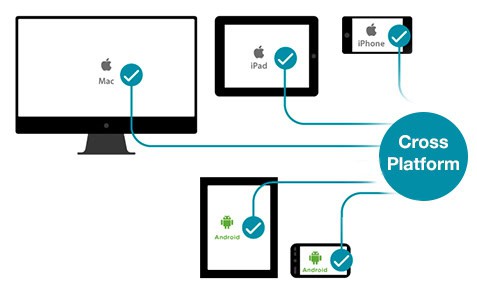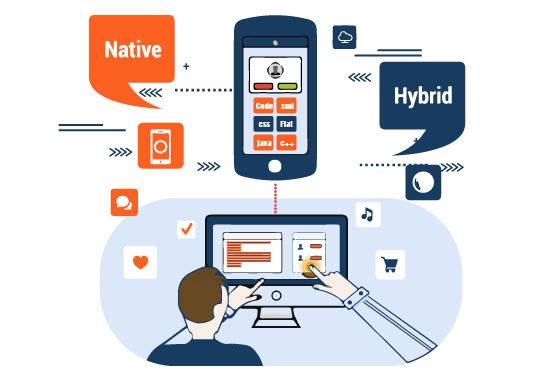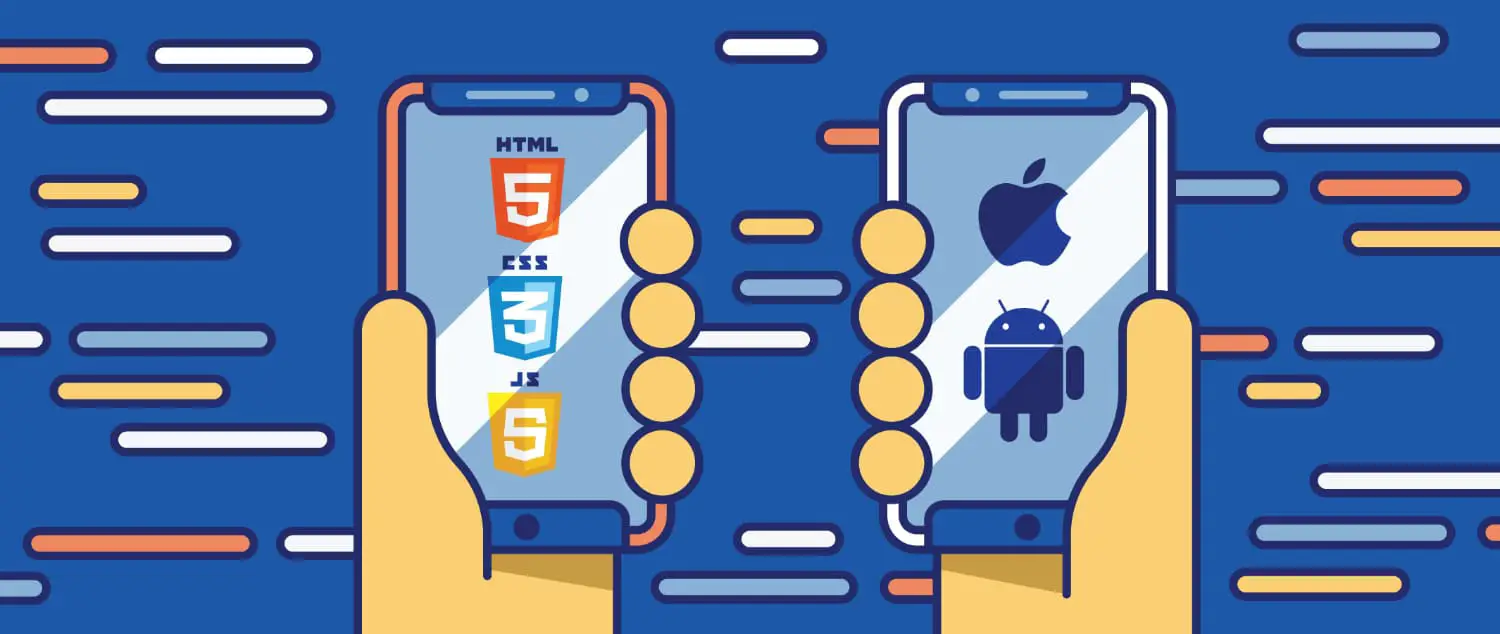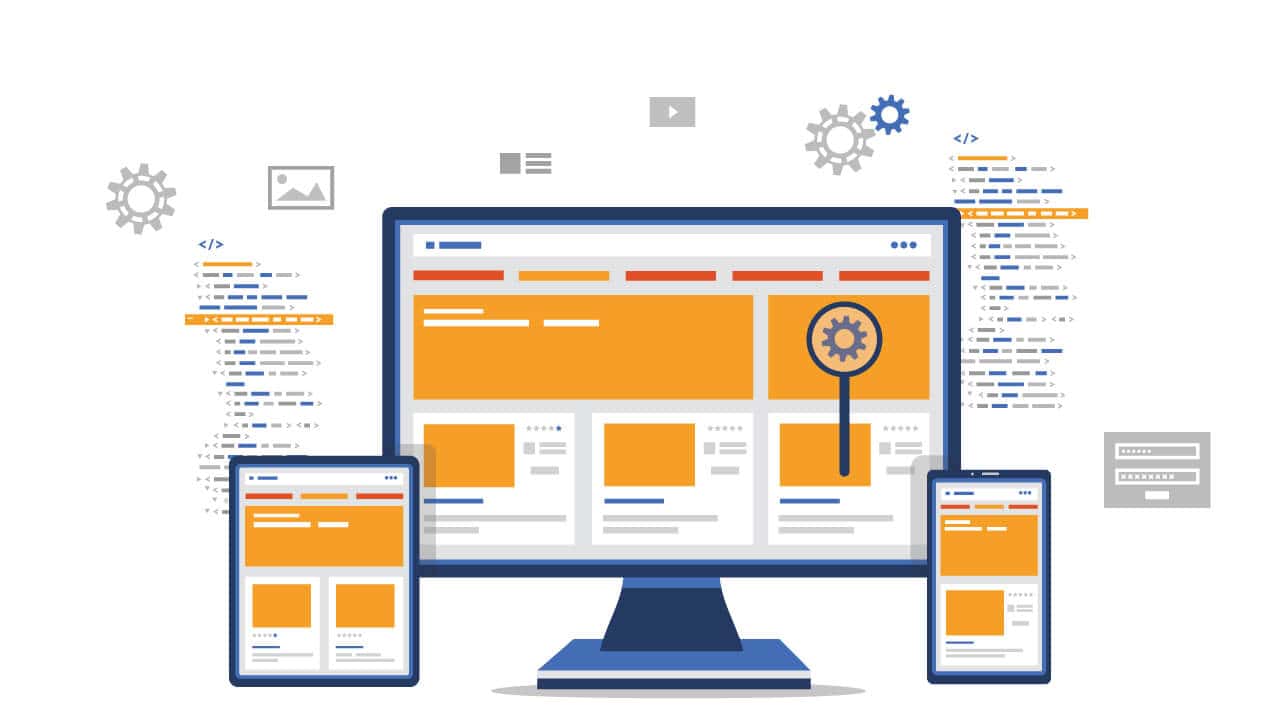Hybrid app development has gained popularity among businesses in recent years as it provides effective and affordable solutions for developing mobile apps for various platforms. Developers construct hybrid apps with web-based technologies like HTML, CSS, and JavaScript, which can be easily encased in native app shells. This allows customers to download and use the app on their mobile devices and access features like GPS and camera.
Developing a hybrid app offers several advantages, including creating a singular app that can be deployed across multiple devices, saving businesses time and money. Hybrid apps are easy to maintain and update, providing more customization options than web app development.
However, hybrid app development has some disadvantages, such as not offering the same level of speed and user satisfaction as native apps due to their reliance on online technology. Therefore, businesses must consider the pros and cons of hybrid app development to determine if it is the best option for their requirements.
See Also: Cross-Platform App Development [Beginner’s Guide]
Table of Contents
Pros and Cons of Hybrid App Development
Hybrid app development may be a well-known approach that combines the benefits of local and web applications to form a flexible and cost-effective arrangement.
Beginning with web innovations like HTML, CSS, and JavaScript, the method of producing hybrid applications wraps up with a local container that empowers clients to download and introduce them similarly to other apps. Indeed even though hybrid app advancement may be a great alternative for a few businesses, it has drawbacks. We are going to compare the pros and Cons of Hybrid App Development.
Benefits of Hybrid App Development
These are a couple of points of interest in creating hybrid apps.
Affordable Development
The reasonableness of hybrid app advancement is one of its most critical focal points. Designers can make a single program that runs on numerous stages with hybrid applications, whereas the advancement of native apps must be particular for each platform. This brings down the cost of advancement and makes it conceivable for companies to make apps that fulfill their needs without going bankrupt.
Hybrid app advancement is the leading alternative for companies on a tight budget since it is less costly than native apps. Businesses seeking cost-effective solutions for web development can opt to hire offshore web developers. These skilled professionals, often based in countries with lower labor costs, offer competitive pricing while delivering high-quality results.
Web advances, which are promptly accessible and well-understood, permit the quicker creation of hybrid apps than local apps. As a result, businesses can spare money by using as it were one group of engineers to form their apps for both iOS and Android.
Cross-Platform Integration
Another advantage of hybrid programs is the upside of being consistent with different working systems. Hybrid apps can operate on various platforms, including iOS and Android. Crossover apps can work on different stages, counting iOS and Android. Businesses may save time and resources by forgoing the requirement to create customized applications for every platform.
Businesses may reach a bigger audience by creating a single hybrid app that runs on iOS and Android. Additionally, they may connect with users who use both platforms, which is difficult with separate native apps.
Quicker development
Hybrid apps are easier to maintain because of their creation using web technologies that have a large developer community and are of use worldwide. Using frameworks like React Native and Ionic, developers can quickly create hybrid apps.
Because they save developers from starting from scratch, frameworks and pre-built components can significantly reduce development time. They can concentrate on the app’s logic and operation rather than creating the user interface from scratch.
Simple to maintain
Using common web technologies and leveraging large developer communities makes maintaining and updating hybrid apps easy.
Because of the creation of hybrid apps using web technologies, businesses can easily find developers with the necessary skills to maintain and update them. As a result, there is no longer a requirement for developers who specialize in a single programming language.
Utilization of Device Features
Like native apps, hybrid apps can access the device’s camera, GPS, and accelerometer. This enables companies to construct apps that make the most of all device capabilities without having to forego expense or development time.
Hybrid apps make use of native wrappers to access the device’s features. This implies that companies don’t need to use native programming to create apps with capabilities like push notifications, camera access, and geolocation.
Cons of Developing Hybrid Apps
Following are some of the cons of Hybrid app development.
Performance Challenges
Execution issues are one of the biggest impediments to hybrid app development. Since hybrid apps are slower than local apps, customers who need speedy and consistent involvement may have issues. Hybrid programs may, encounter gradualness, drowsy stacking, and subpar visuals.
Performance issues may emerge since hybrid apps depend on web innovations that work in a browser-like environment. Hybrid apps may have extra execution issues since they are not local to the stage, and optimization for the equipment and computer program of the gadget may not be possible.
User Encounter Is Limited
The degree of client experience advertised by hybrid apps seems not as tall as that of local apps. Local applications offer a progressed client interface since they are made particularly for a stage and can utilize all of its highlights and capabilities.
Hybrid apps may not have access to a platform’s capabilities and civilities, which might result in constrained usefulness and client involvement. As a result, there may be limitations to the usefulness and client involvement of the hybrid app.
Not sufficient customization
Limitations to the alternatives for customization by hybrid app advancement. Customization options may be limited by the pros and cons of hybrid app development because of their creation using pre-built components.
The offered features may not provide enough customization choices to satisfy the particular needs of businesses.
Dependence on Tools from Third Parties
The creation of hybrid apps may require third-party plugins, frameworks, and technologies. Compatibility issues may arise if third-party tools used in hybrid app development are modified or discontinued.
Constraint of the app’s usefulness by the fact that third-party tools might not always offer the necessary customization and capability.
Security Issues
Compared to native apps, hybrid apps could be more vulnerable to security issues. Hybrid apps may be more vulnerable to attacks like cross-site scripting (XSS) and SQL injection because of their creation using web technologies.
Hybrid apps could not be as secure as native apps because they function in a browser-like environment. Hackers may find it simpler to take advantage of flaws and access sensitive data as a result.
FAQs
What is a hybrid app?
A mobile application known as a hybrid app includes features from both native and online applications. They are created with web development tools like HTML, CSS, and JavaScript and are then encased in a native app shell for easy downloading and setting up on mobile devices.
What benefits do hybrid app developments offer?
Hybrid apps can be created once and distributed across multiple platforms, saving time and money, and have access to device functionalities, can be produced more quickly, and are cross-platform compatible. In addition, hybrid apps can access smartphone functionalities like GPS and cameras for use within the app.
What are the disadvantages of developing hybrid applications?
Potential performance issues, a constrained user experience, a lack of customization, reliance on third-party technologies, and security vulnerabilities are all drawbacks of hybrid app development. Due to the use of web technologies, hybrid apps might not be able to offer native apps' level of user experience and might have performance problems.
Can hybrid apps be used offline?
Hybrid apps can really function offline. They can save information locally on the device, which is accessible even when the gadget is not online. But certain app features might need an internet connection to work effectively.
Conclusion
Hybrid app development saves time and money while providing access to device functionalities across platforms. However, it has downsides like poor performance, limited personalization, and security risks that can affect user experience.
Consider your requirements, budget, and timeline before choosing a development technique.
Some companies may find hybrid app development suitable, while others may opt for native app development for better functionality and user experience. Weigh the pros and cons of hybrid app development to determine if it’s right for you.
See Also: What Is The Software Development Lifecycle? – Complete Guide















